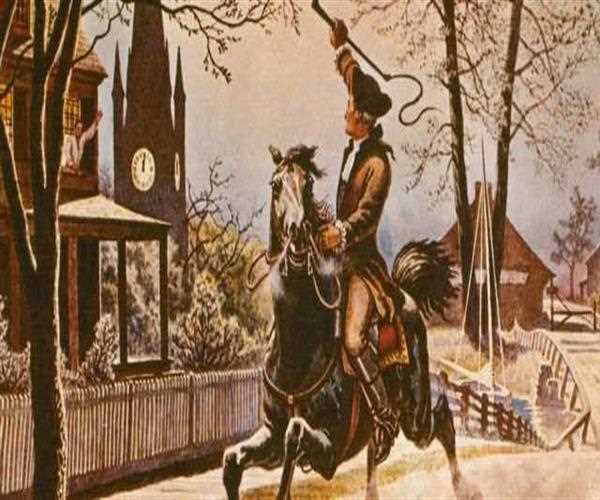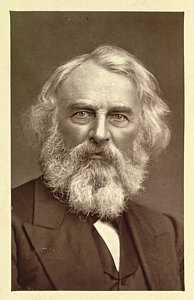People’s opinion differ about the adjectives used to describe Paul Revere...but the three most common adjectives found common in almost every description are “Patriot”, “Brave” & “Sly”. Paul Revere is basically a character from the poem by H. W. Longfellow, “Paul Revere’s ride”.

"Paul Revere's Ride" is an epic poem by Longfellow that is often seen as one of his most finest writings. This is the retelling of the famous ride Paul Revere made before the start of the American Revolutionary War. Revere was sent to Lexington and Concord in order to warn them of the incoming troops. However, after reaching Lexington and on his way to Concord, he Revere was captured by a British patrol. Luckily, one of the men riding with him was able to escape and warn Concord. The poem consists of fourteen stanzas with varying lines in each for a total of 143 lines.
Revere tells his friend to hang a lantern in the belfry of the Old North Church and to signal with one lamp if the British are coming by land and two if coming by sea. He will be on the opposite shore and will ride and spread the alarm in the countryside. He tells his friend goodnight and departs, silently rowing across the river. The moon rises and illuminates the Somerset, a British man-of-war ship.
Revere’s friend anxiously walks through the streets until he hears men’s footsteps and the sound of arms; the British are marching down to their boats. He carefully and stealthily climbs to the tower of the church, startling the pigeons along the way. High above the town he looks down, noticing how the moonlight illuminates the churchyard. It is so quiet he imagines he can hear the wind whispering “All is well.” Across the river Paul Revere is ready to ride. He eagerly watches the belfry tower and finally sees a gleam of light. He prepares to take off and sees another lamp burning. He moves quickly, sparks flying from under his steed and enflaming the land he traverses.

H. W. Longfellow
He crosses into Medford just after midnight. The fog is thick, and a dog barks in the distance. By one he has galloped into Lexington, the blank windows of the meeting-house ominous and spectral. By two he is in Concord. It is almost morning and he can hear birds and feel the breath of the breeze. The person who will die first, killed by a British musketball, is still asleep in his bed.
The narrator tells us we know the rest: we know about the farmers fighting the British Regulars, firing and reloading and chasing them off.
Paul Revere rode through the night and gave the cry of alarm—a cry of “defiance and not of fear”—and knocked on doors. He flew on the wind of the Past, and in every hour of darkness we have now his horse’s hoofbeats and his “midnight message” still echo.